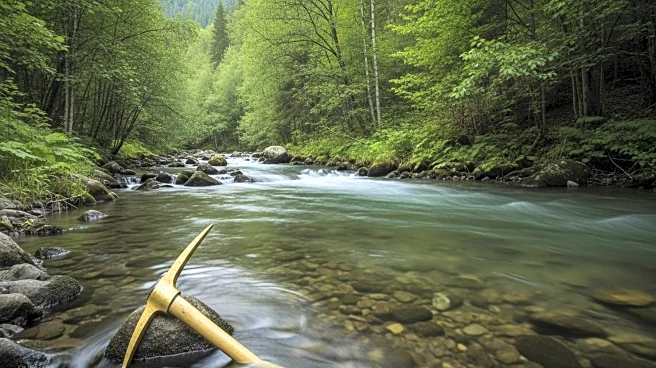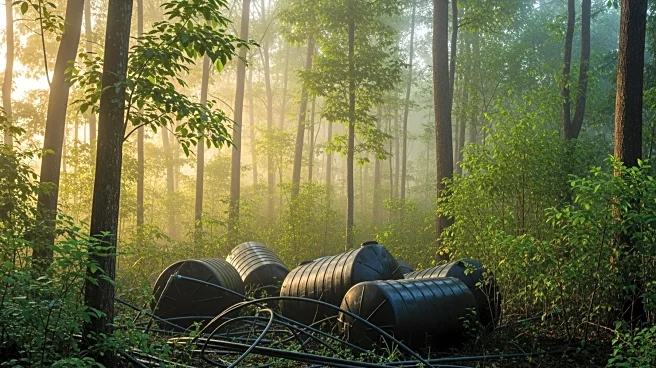What's Happening?
Ecuador's government has revoked the environmental license for the Loma Larga gold project, operated by Canadian company DPM Metals, due to environmental and public health concerns. The decision follows opposition from local residents and authorities in Azuay province, who argue that the project threatens the Quimsacocha water reserve, a crucial source of drinking and irrigation water. The Environment and Energy Ministry cited technical reports from regional officials as the basis for the revocation, aligning with the government's commitment to protecting natural ecosystems and community well-being. The project, valued at $419 million, was expected to produce significant gold output but faced suspension pending an environmental management plan.
Why It's Important?
The revocation of the Loma Larga project's license highlights the growing tension between economic development and environmental protection. This decision reflects Ecuador's prioritization of water resources and community health over mining interests, setting a precedent for future projects. It underscores the influence of local communities and environmental advocacy in shaping government policy. The move could deter foreign investment in Ecuador's mining sector, impacting economic growth and employment. However, it also reinforces the importance of sustainable practices and the need for companies to address environmental concerns proactively. The outcome may influence similar decisions in other resource-rich regions facing environmental challenges.
What's Next?
DPM Metals has yet to respond to the license revocation, and the company's next steps could include legal challenges or negotiations with the government. The situation may prompt other mining companies to reassess their operations in Ecuador, considering the heightened scrutiny on environmental impacts. The government may face pressure to develop clearer guidelines and regulations for mining projects to balance economic and environmental interests. Additionally, this case could inspire other communities to advocate for environmental protection, potentially leading to more stringent oversight of natural resource exploitation in Ecuador and beyond.








